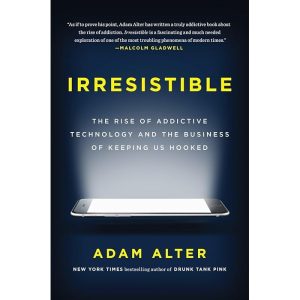Description
**”The Age of AI: And Our Human Future”** is a book by Henry A. Kissinger, Eric Schmidt, and Daniel Huttenlocher, first published in 2021. The book explores the rapidly advancing development of artificial intelligence (AI) and its profound implications for society, politics, and human identity.
### Key Themes and Ideas:
1. **Transformation of Human Society**:
The authors argue that AI is reshaping the very fabric of human existence, from how we work and interact to how we think and make decisions. They discuss how AI’s growing presence could alter the way we understand the world and ourselves, influencing everything from individual cognition to global governance.
2. **AI and Global Power Dynamics**:
The book delves into the geopolitical implications of AI, examining how nations that master AI will have significant advantages in terms of economic power, military capabilities, and global influence. The authors focus on the U.S. and China as the two primary players in this technological race.
3. **Ethical Considerations**:
A substantial portion of the book is devoted to the ethical challenges presented by AI. This includes questions about how AI will affect privacy, surveillance, and human rights. It also addresses the potential for AI to exacerbate social inequalities, as well as the need for governance and regulation to mitigate these risks.
4. **AI and the Future of Work**:
The book explores the implications of AI on labor and employment. With automation increasingly taking over repetitive and specialized tasks, the authors discuss the possible consequences for human workers, especially those in low-skill or routine jobs, and how economies might adapt to these changes.
5. **Philosophical and Existential Questions**:
One of the most profound aspects of the book is its reflection on the philosophical dimensions of AI. The authors ask how AI might change our understanding of consciousness, intelligence, and the role of human beings in the universe. They ponder whether AI might one day surpass human intelligence and what that could mean for human identity and autonomy.
6. **AI as a Tool for Human Progress**:
While acknowledging the risks, the authors also recognize the potential benefits of AI in solving complex problems, from climate change to healthcare. They emphasize that AI can serve as a tool to enhance human creativity and improve lives, provided it is harnessed responsibly and ethically.
### Structure and Approach:
The book is written in a collaborative and accessible manner, blending the perspectives of its authors. Kissinger, a former U.S. Secretary of State, brings his expertise in geopolitics; Schmidt, former CEO of Google, provides insight into technology; and Huttenlocher, a computer scientist, adds depth in AI theory and practice.
Together, the authors offer a nuanced view of AI, recognizing both its transformative potential and the dangers it could pose. They emphasize the need for careful consideration of how we integrate AI into society and advocate for thoughtful governance to ensure that AI’s power is used for the greater good of humanity.





Reviews
There are no reviews yet.